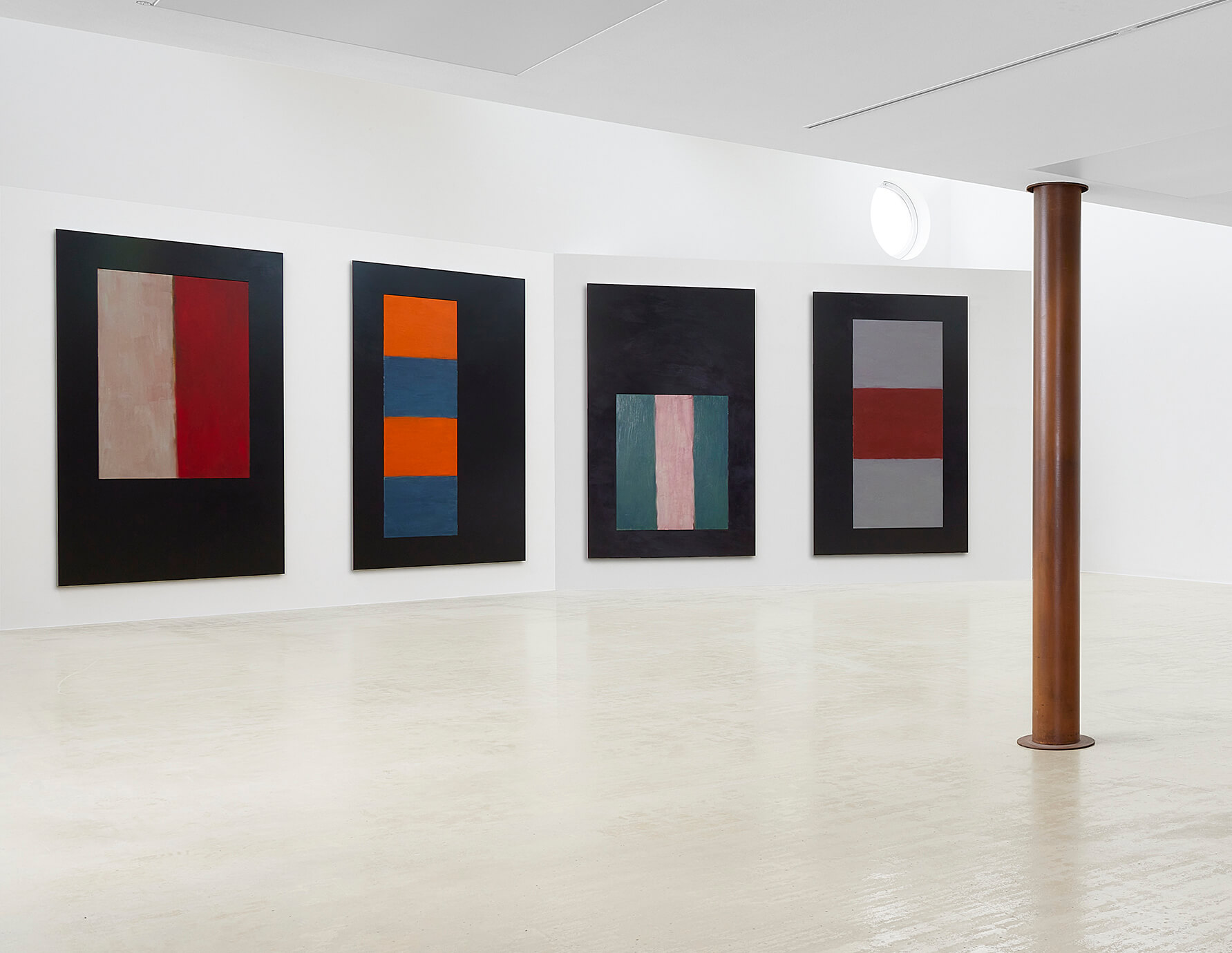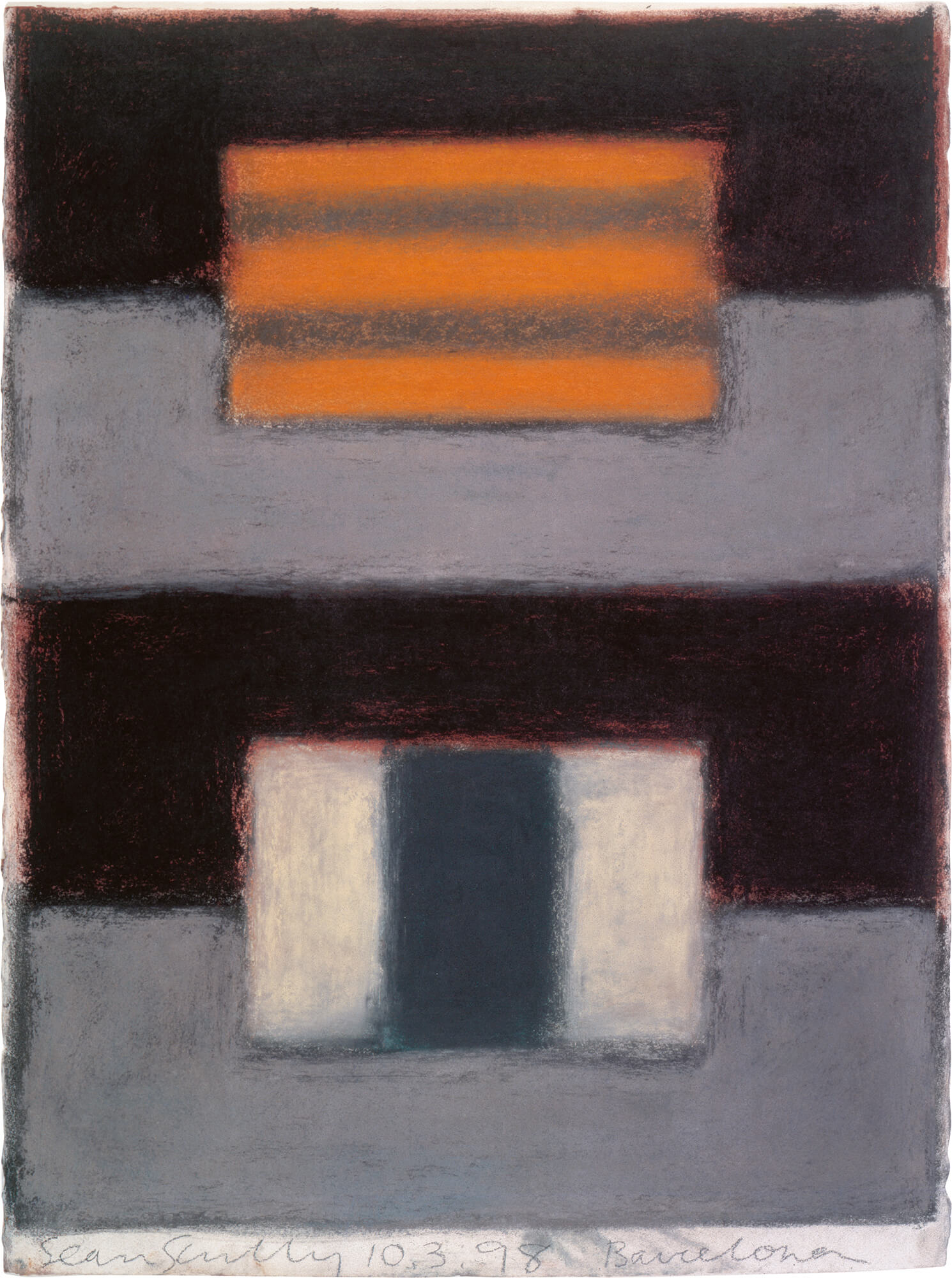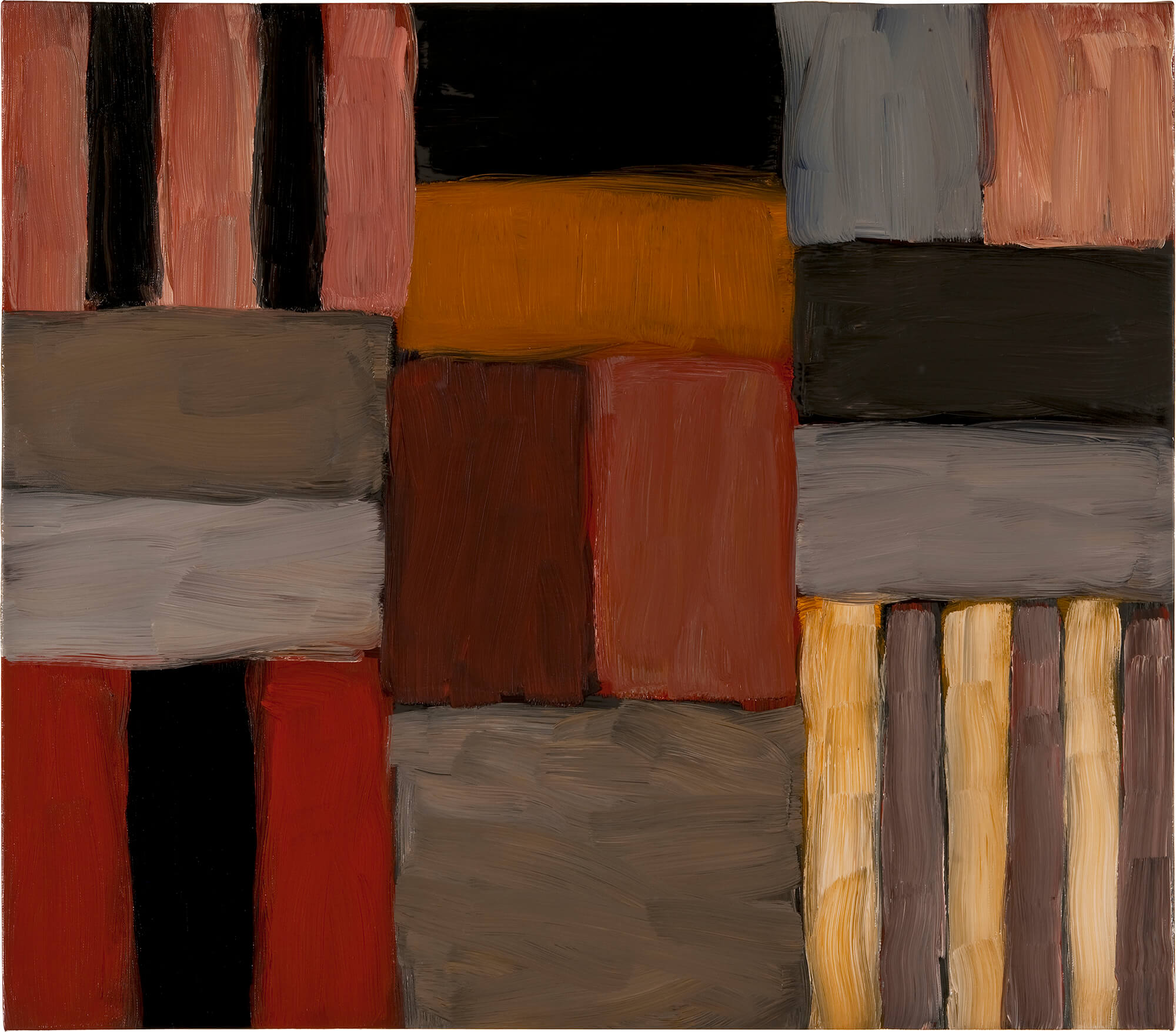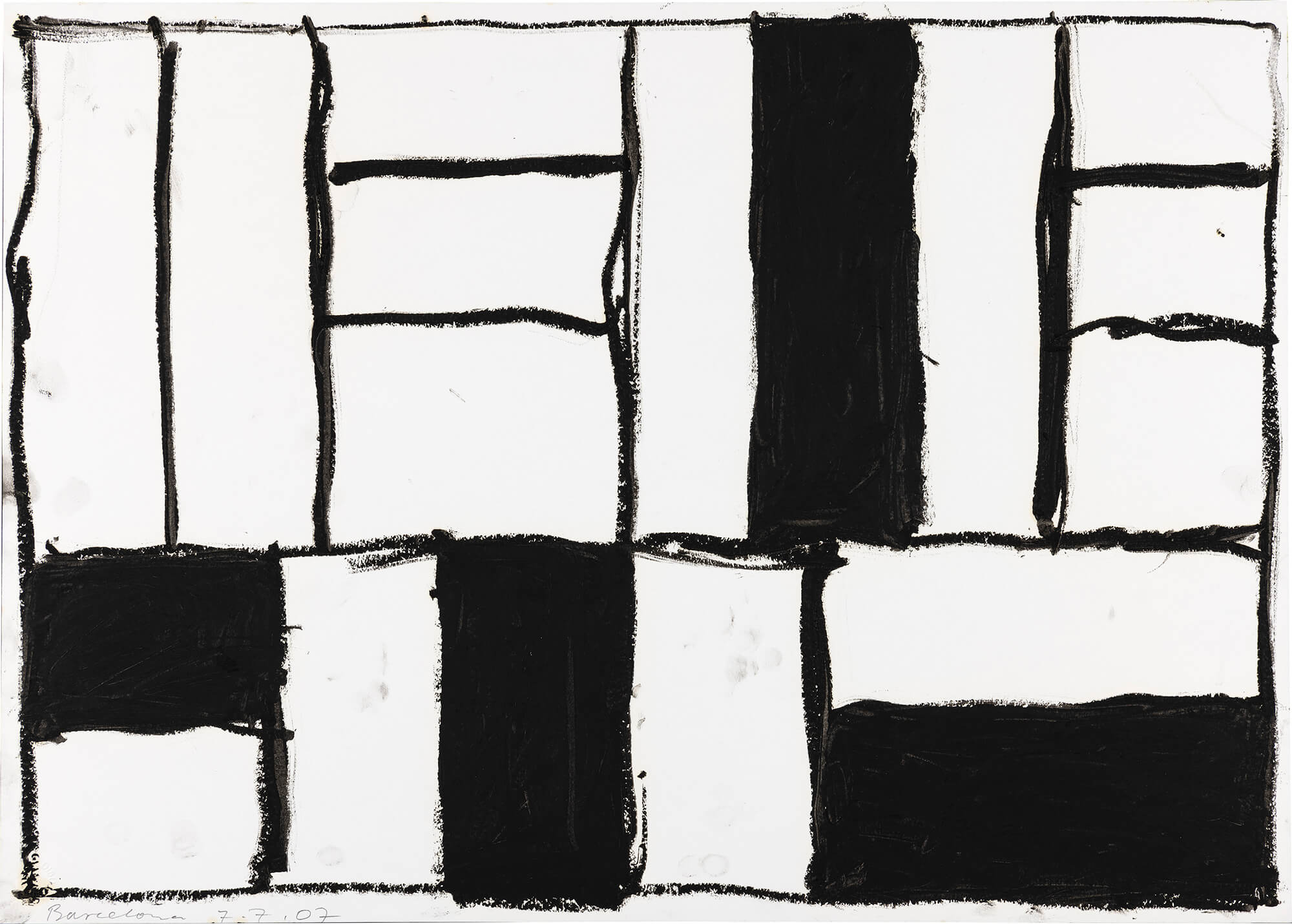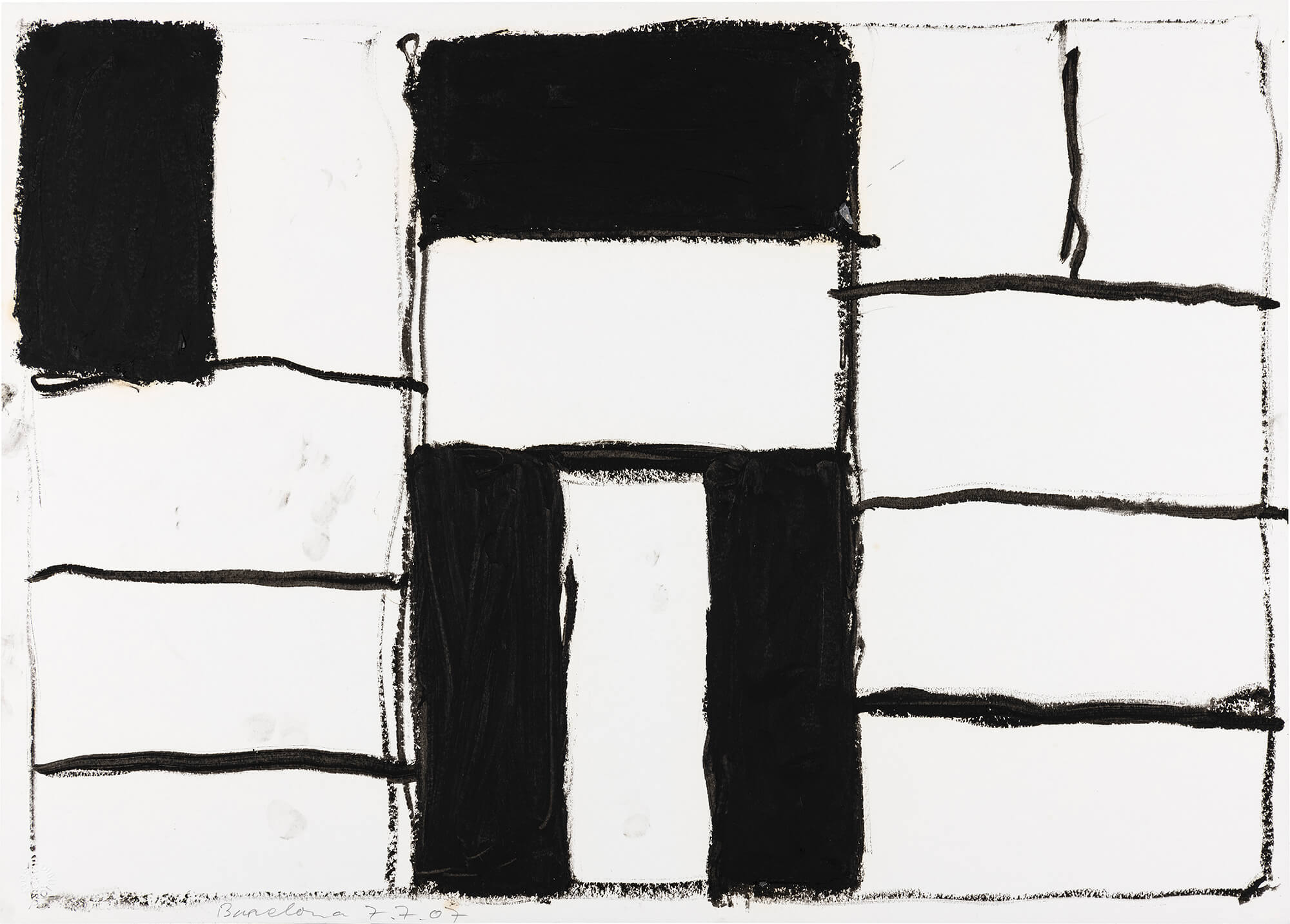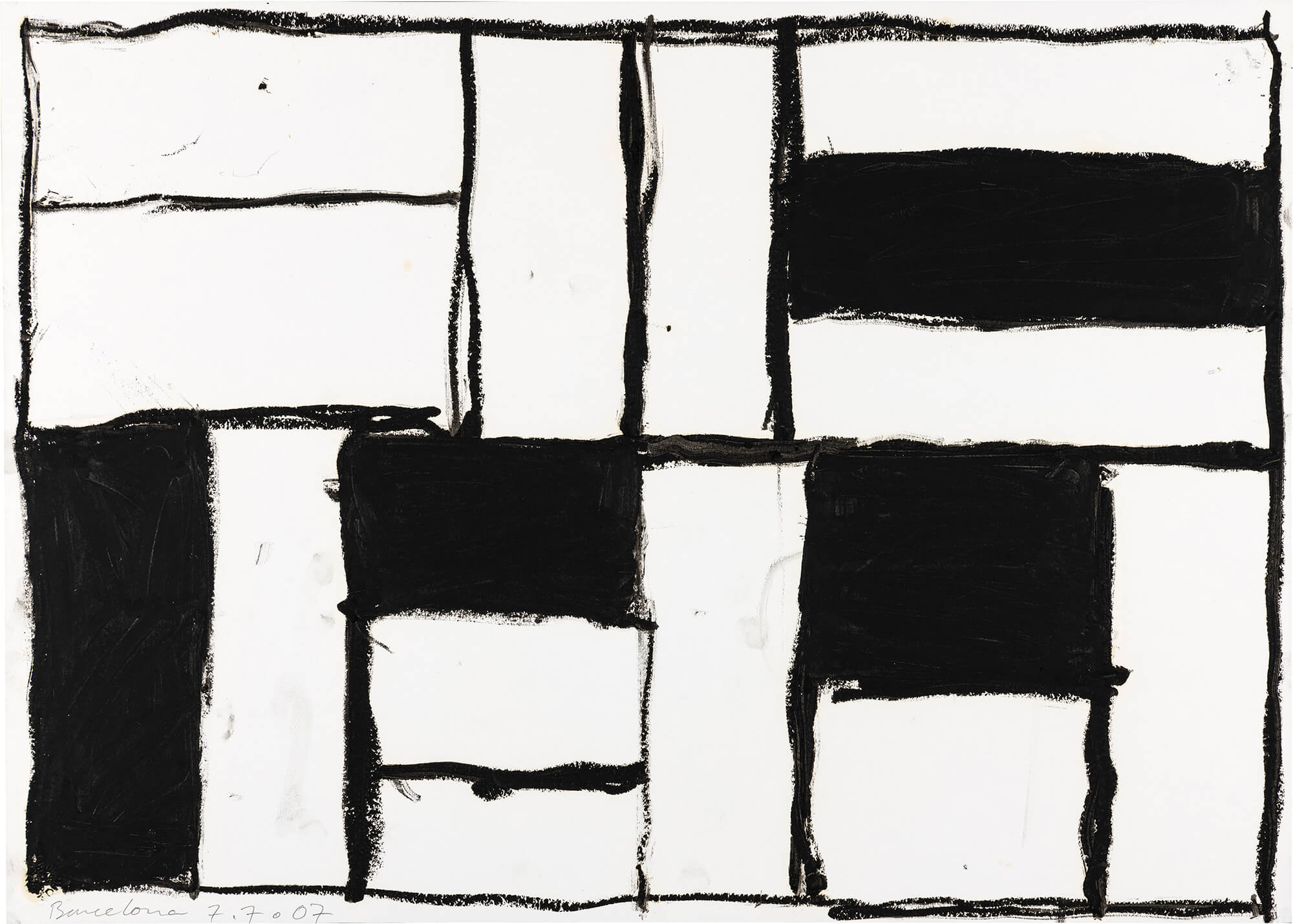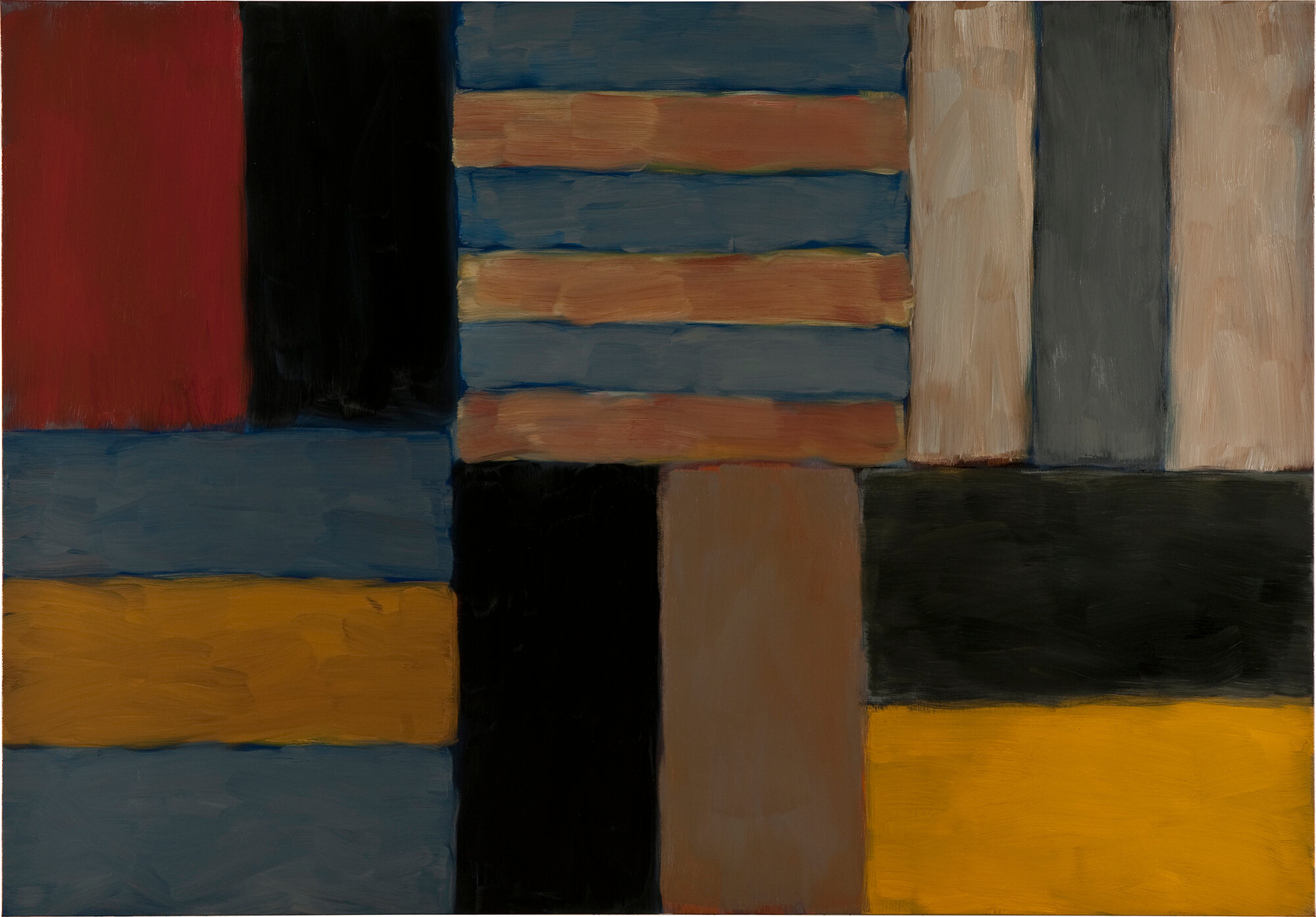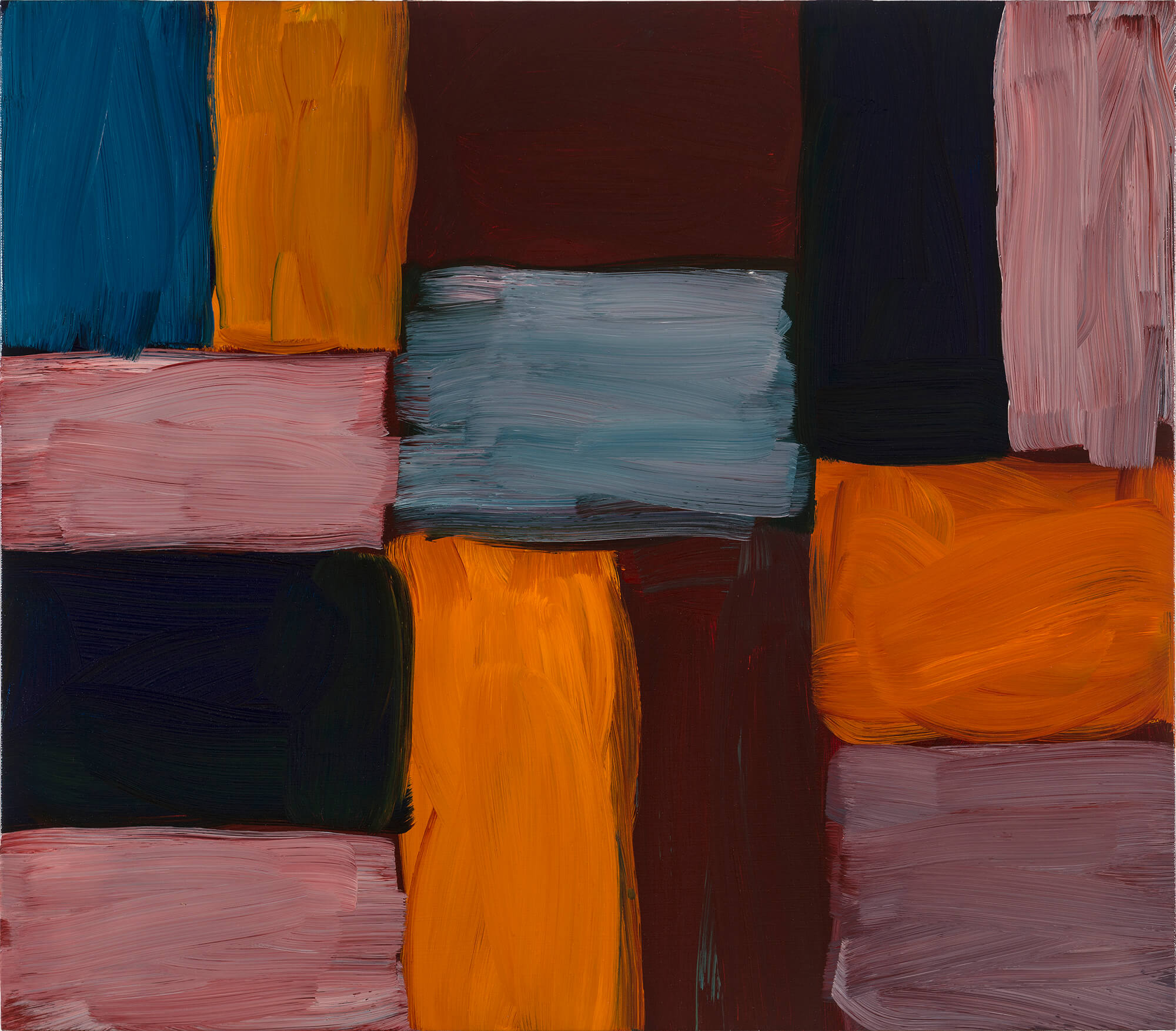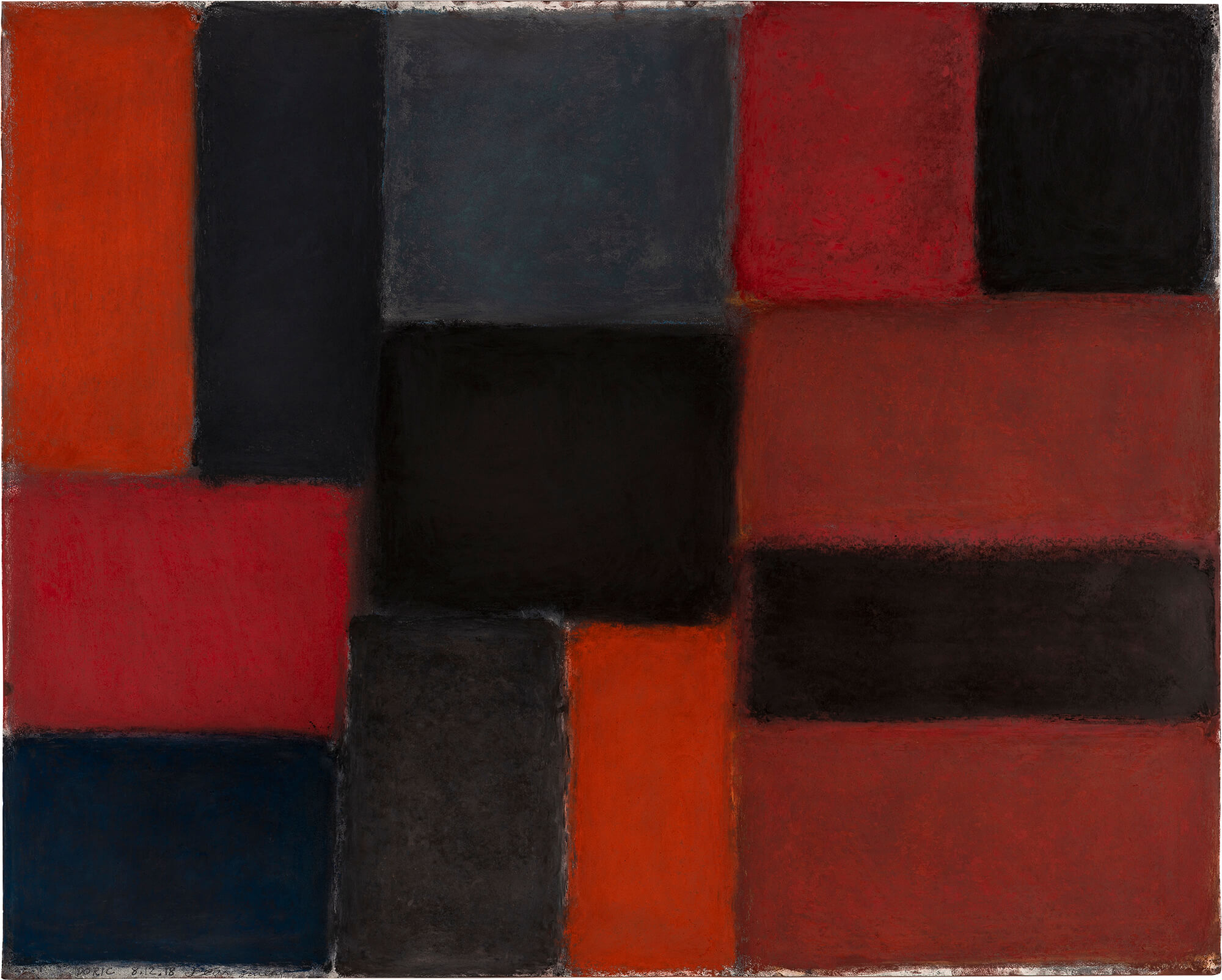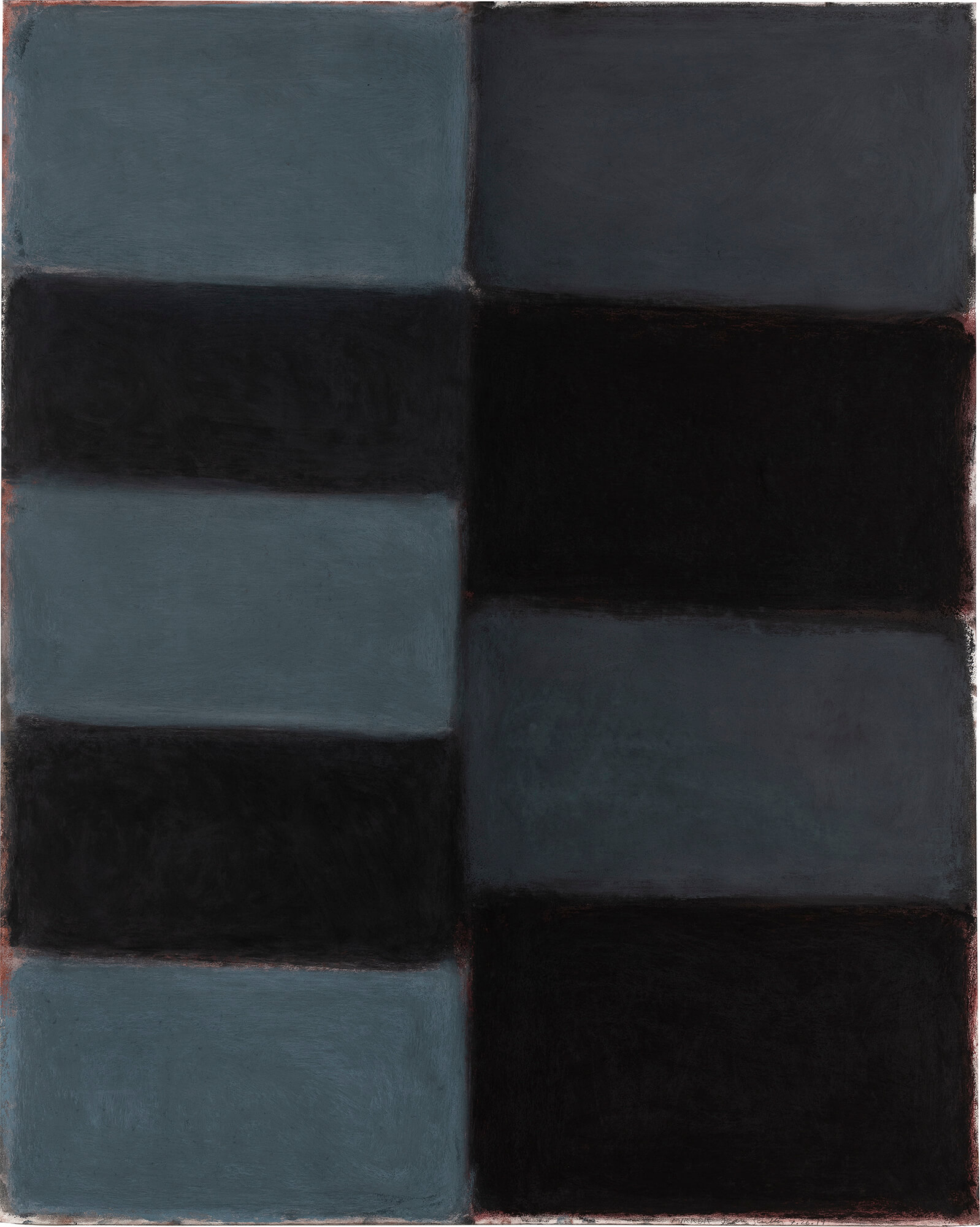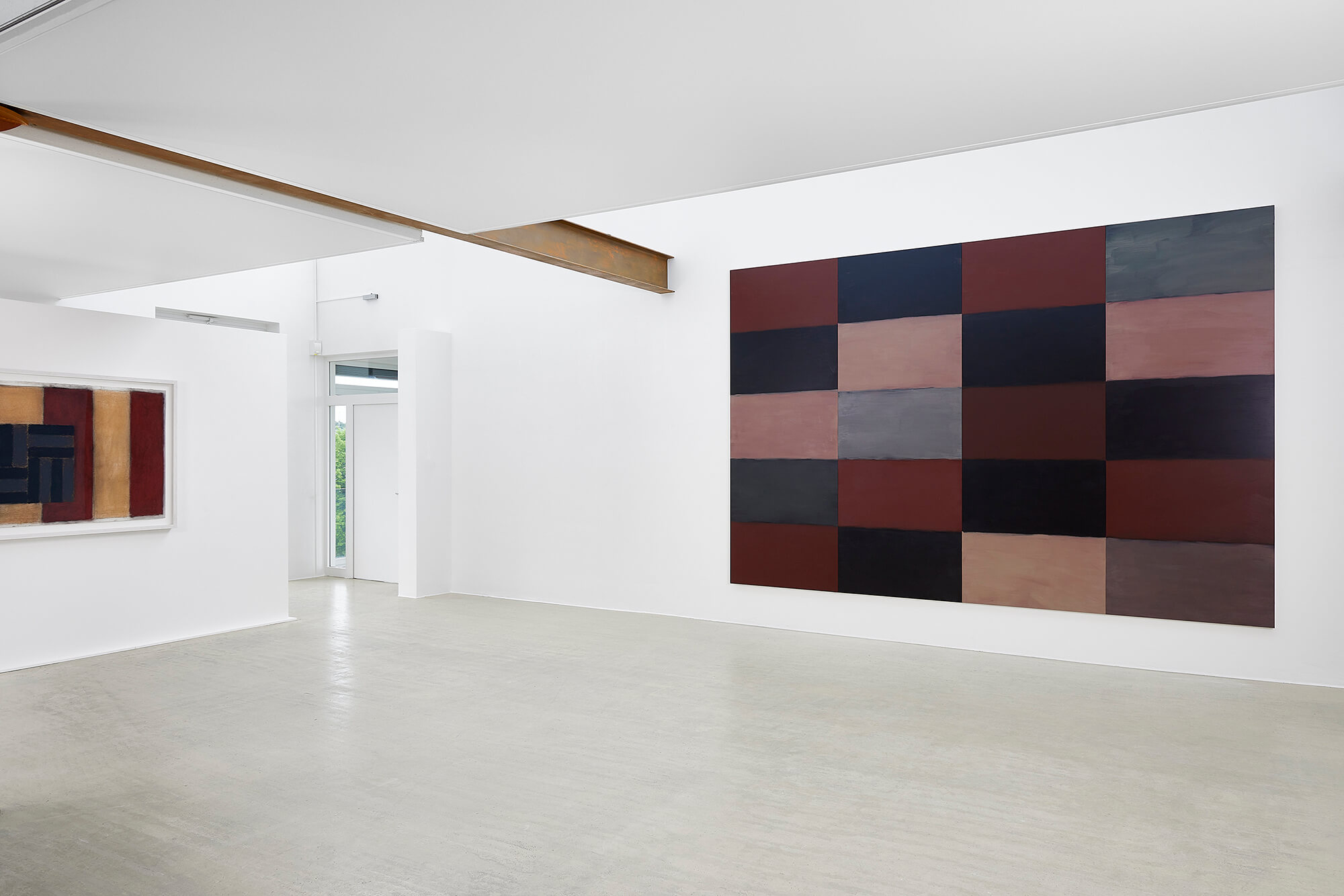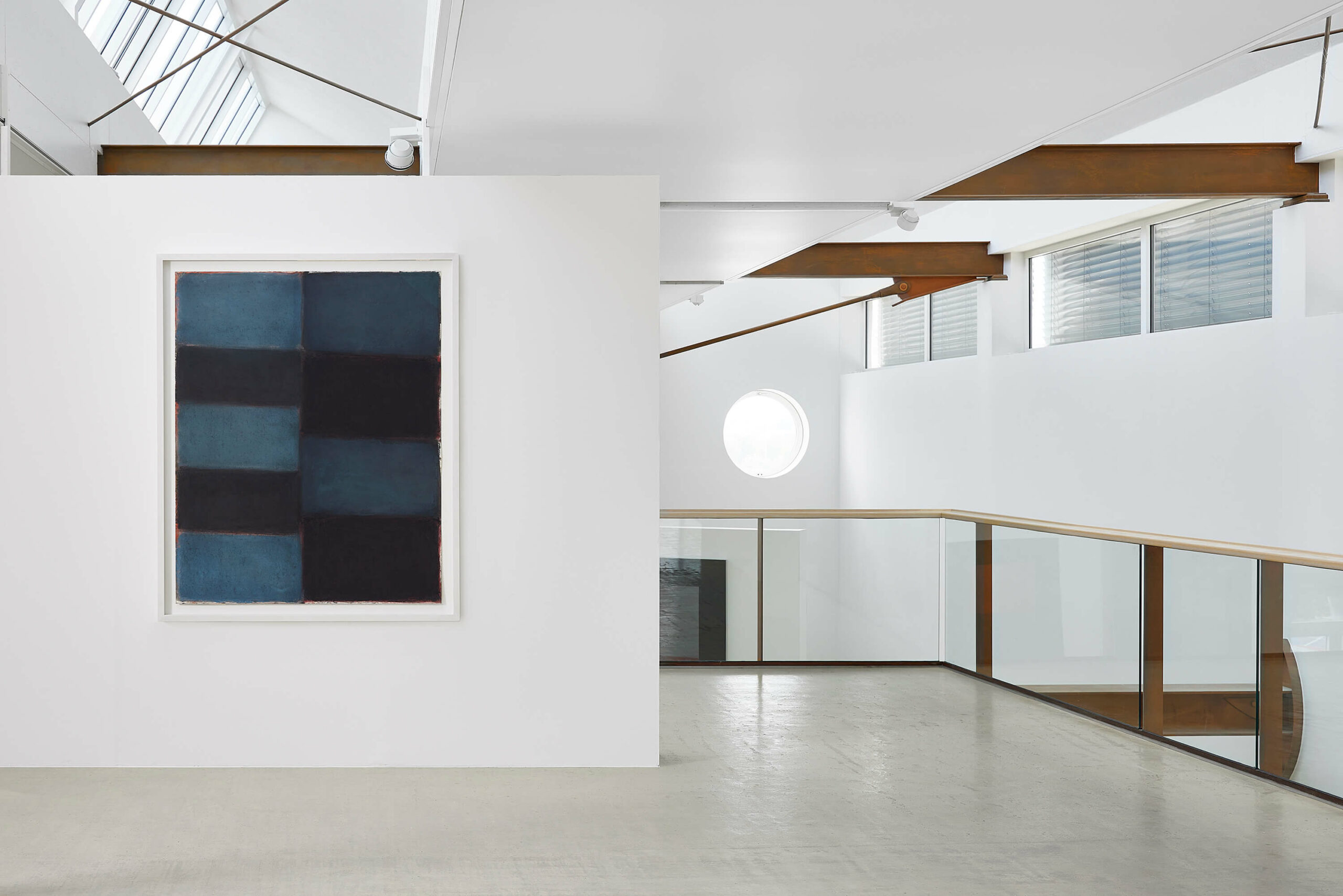From 19 June to 18 December 2022, the KUNSTWERK Sammlung Klein presents a show of international standing: a solo exhibition of the Irish-American artist Sean Scully (*1945). On display are paintings, pastels, etchings and drawings from around three decades that present essential leitmotifs of his abstract painting and convey the special quality of his pictures as events that can be experienced both sensually and emotionally. At the beginning of the exhibition, the sculpture Venice Stack made of coloured Murano glass refers to the painter’s sculptural activity. At the same time, it opens up an examination of the object-like, physical aspects of his paintings.
#25
Sean Scully was born in Dublin in 1945 and grew up in London. After studying in Newcastle, UK, a Harvard scholarship took him to the USA in 1975. It was there that the decisive step in his art took place, namely to give abstract painting an emotional dimension that creates an immediate connection with the viewer. Since the early 1980s, he has been one of the most important contemporary painters internationally. Today he lives in New York, Aix-en-Provence and Germany.
What characterises the radiance of Sean Scully’s work, both in his artistic position and in the direct encounter with his works, is first of all the expressiveness of his abstract painting. His paintings are based on assemblages of geometric forms, of vertically and horizontally aligned rectangles, stripes, bands. But the application of the paint shows a clearly gestural handwriting and thus lays a track to the subjectivity, to the feeling and thinking of the artist. With the colouring of his works, which is as rich as it is subtly differentiated, Scully creates pictorial sound worlds that open up personal resonance spaces when viewed.
The fact that Sean Scully has been creating large-format three-dimensional works for twenty years is also evident from the sculptural quality of his painting. The exhibition at KUNSTWERK investigates the question of whether it is not precisely this that contributes to the fascinating presence that his paintings develop in the architectural surroundings of the exhibition space.
#TOUR
Ebe
Level 0 | Level 1
ne 1 | NINA RÖDER
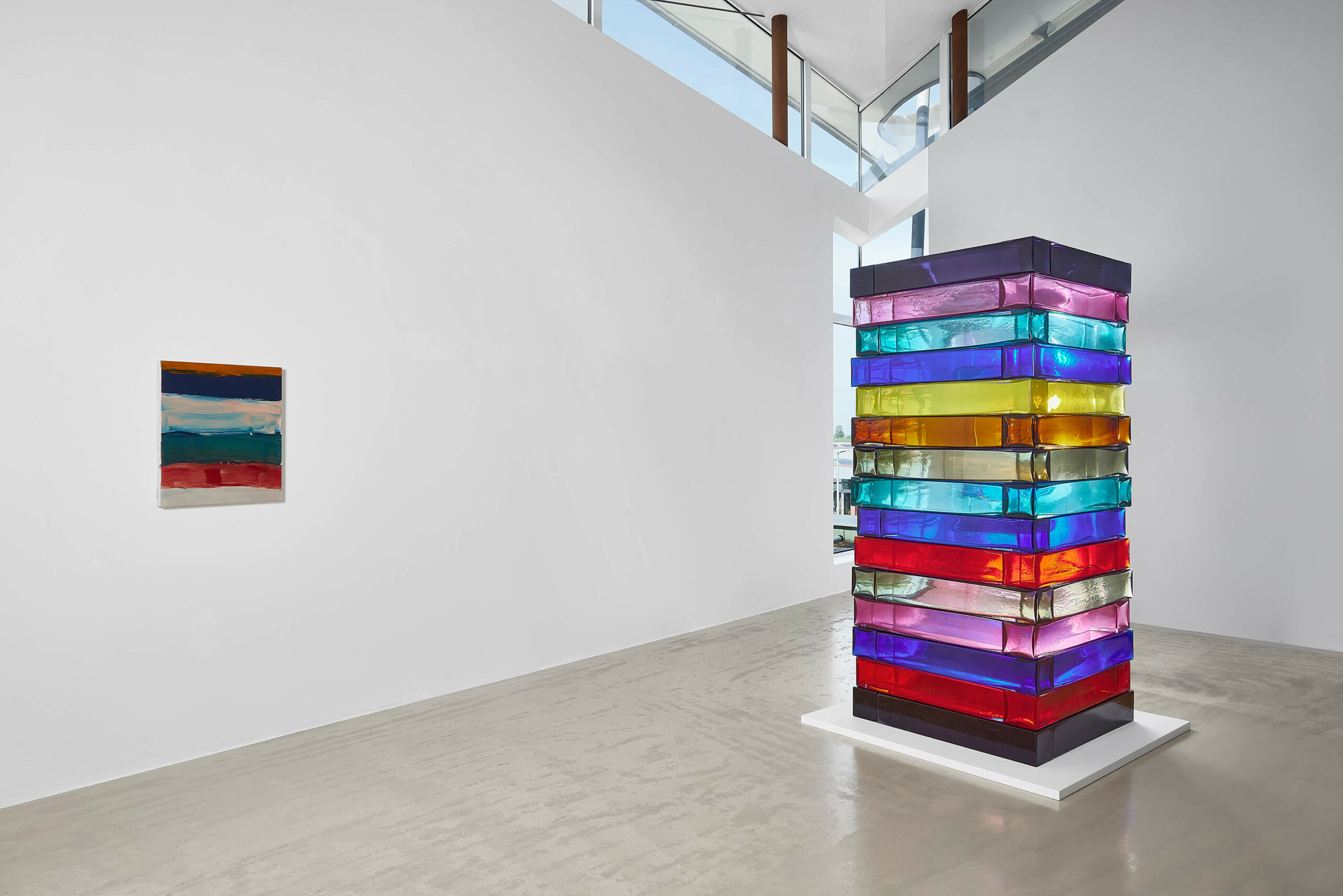
The sculpture Venice Stack from 2020 consists of eleven layers of coloured Murano glass. It rises on a square ground plan and encloses an empty interior space in which the light is concentrated. The glass is transparent on the one hand and opaque on the other, so that the chromatic luminosity of the sculpture is further differentiated and develops almost painterly qualities.
The context of painting and sculpture directs the viewer’s gaze to the enormous physical presence that also characterises Sean Scully’s paintings. They defy the traditional notion that a painting offers glimpses of a fictional or illusionistic scenery. Quite the contrary: with the almost haptically perceptible materiality of their surfaces, the works develop their effects into real space. An important role is played by the picture supports themselves, which stand out object-like against the wall surface and have increasingly been made of aluminium since the mid-1990s.
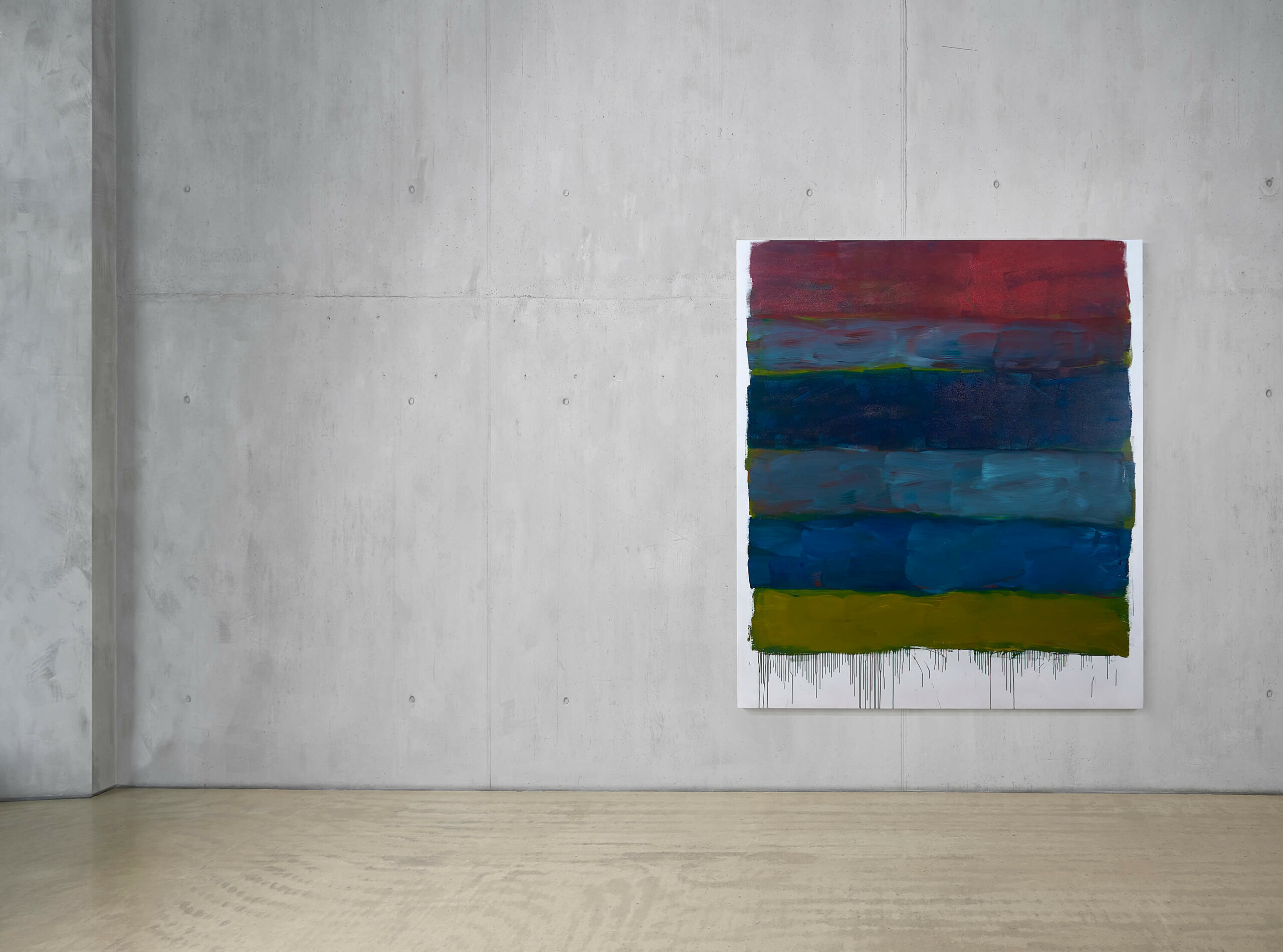
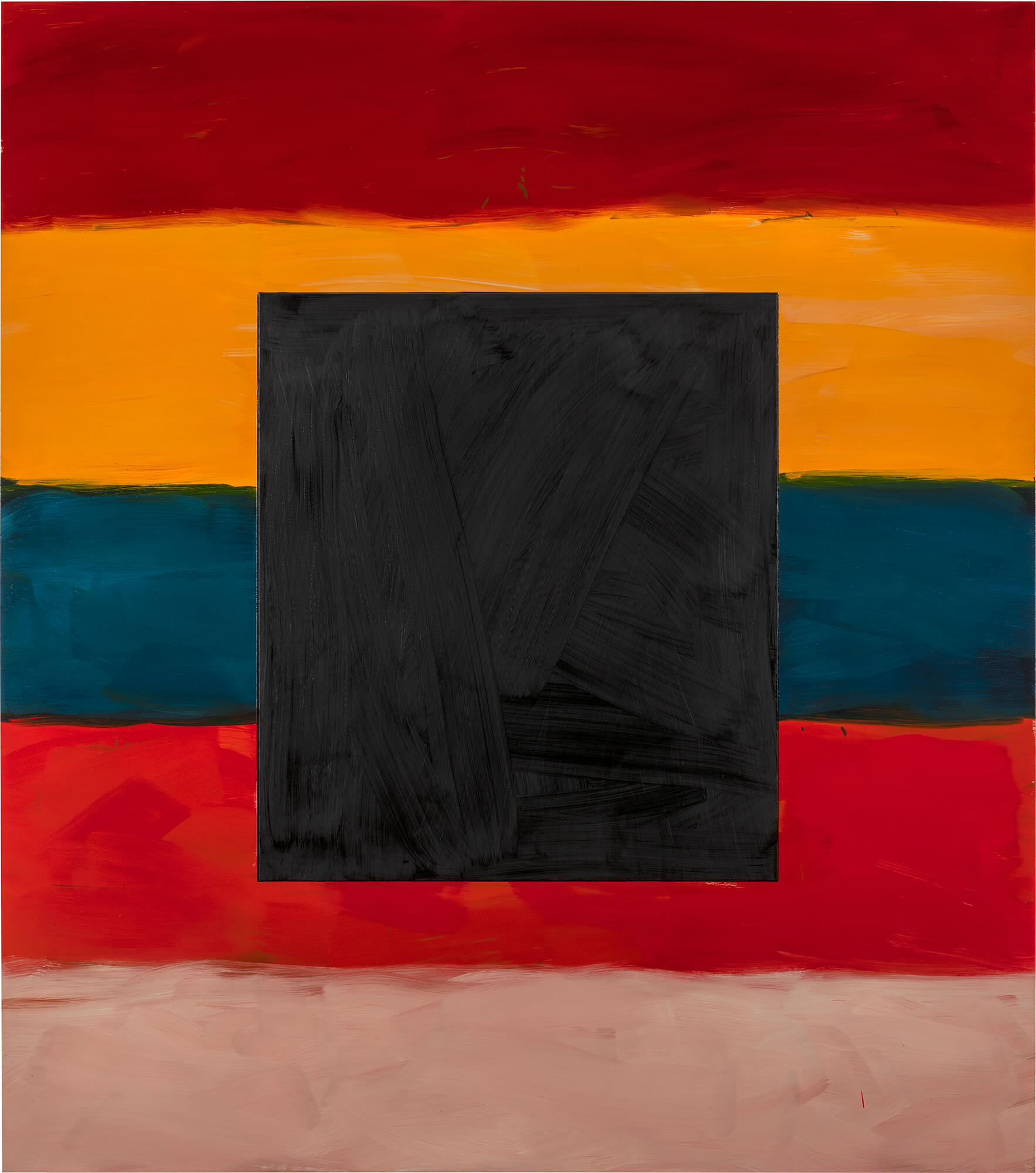
The exhibits on levels 0 and 1 in the KUNSTWERK belong to Sean Scully’s Landline series, with which he began in 2000. Underpinned by the title, their broad, horizontal bands of colour evoke landscape associations. The result is a feeling of boundless oscillation, which develops harmoniously in the interplay of colouring and painterly gesture, or else dynamises with tension. But in the painting Black Window 3 from 2020, a black field abruptly intrudes into the wide sound, a black, rectangular body reminiscent of Kazimir Malevich’s famous Black Square. Painted during the Corona pandemic, Sean Scully captures the existential experience we all share in the form of a window without a view.
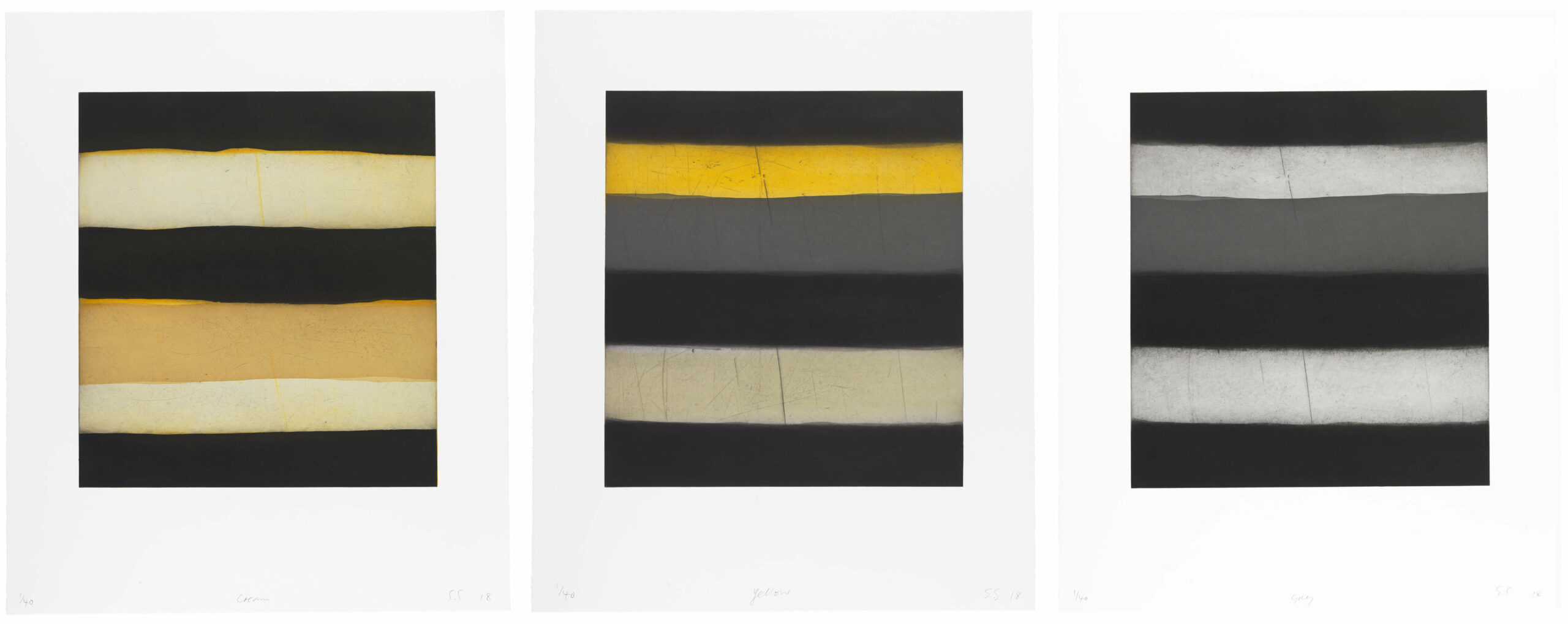
Ebe
Level 2
ne 1 | NINA RÖDER
Both Scully’s use of the non-colour black and his principle of the „inset“ – an image within an image – become apparent with the other exhibits in the exhibition. In the four monumental panels of the work KANKANKAN for KANdinsky, the constellation of Black Window 3 is reversed. Here, coloured elements in different formats and positions are mounted in black pictorial bodies. From the dark background, their colourfulness develops an immense radiance that seems almost sacral in the bright hall of the KUNSTWERK. In a way, they refer back to the sculpture Venice Stack, which, as a coloured light vessel made of glass, is reminiscent of church interiors.
The large group of works Wall of Light includes those paintings whose formal structure consists of a cluster of horizontally and vertically aligned rectangles. Works entitled Cut Ground also contain fields with narrow stripes: The pictorial idea of a „wall of light“ appears here projected onto the particulate structure of a cultivated landscape. The painterly texture and the open joints between the „bricks“ and fields reveal Sean Scully’s working process. They show how gradually, in the many layers of wet-on-wet oil paint, a harmony of elements arises that carries a special mood and allows the painting to become an expressive equivalent of human existence.
Sean Scully’s works prove to be highly rich in relations: each individual pictorial element, each colour is part of a complex pictorial and tonal structure. In several of the multi-part works in the exhibition, the network of relationships extends beyond the boundaries of the individual panels.
But the structures of multi-part pictorial concepts are also inscribed in works the other way round: The pastels entitled Doric are undergirded by the tripartite nature of the triptych; the pastel Mirror 7.26.19 contains references to the diptych and, on the basis of the mirror image, thematises precisely the deviation from exact symmetry.
Ebe
Level 3
ne 1 | NINA RÖDER
The large-format painting Titian’s Robe Pink concludes the tour of the exhibition on level 3. The allusion to Titian’s famous paintings of the Pope, but also to the garment as a medium of expression of identity, once again underlines the rootedness of Sean Scully’s painting in the world of human life, both in the spiritual-historical dimension of cultural history and in the subjective and individual.




